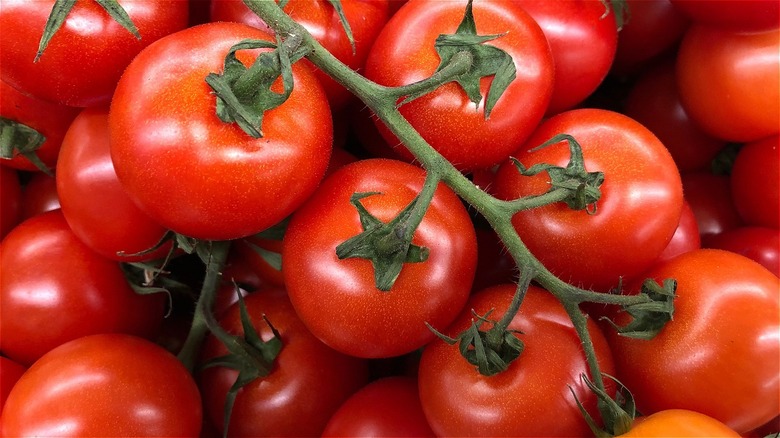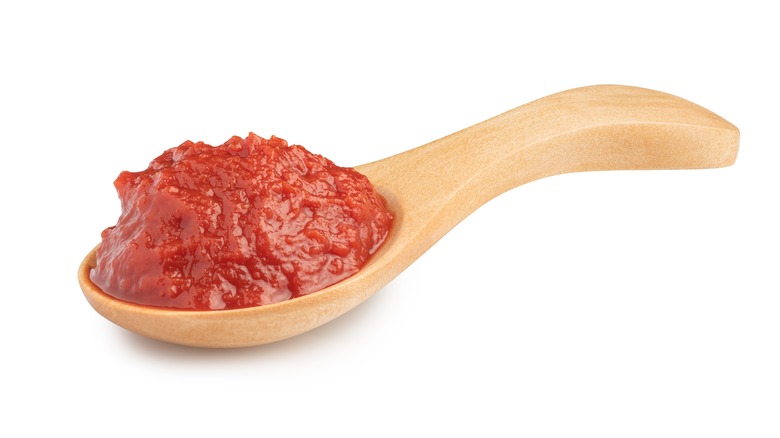When You Should Be Cooking With Tomato Paste Vs Tomato Purée
Tomatoes are classified botanically as fruits, making them one of the arguably most controversial fruits around. For a while, there was a debate on whether to classify them as fruits or as vegetables. While they are botanically considered to be fruits, in the eyes of the United States government, they are legally considered to actually be vegetables. This is because in 1893 the United States government enacted a tariff act to tax vegetables 10%. To avoid paying that extra tax, merchants argued that tomatoes were fruits. This case made it all the way to the United States Supreme Court! So whenever someone asks you if a tomato is a fruit or vegetable, you can confidently tell them that they're classified as both.
Now, the debate has shifted to tomato products, such as tomato paste, tomato purée, and tomato sauce. When is each item used and for what dishes are they best suited? Most of us can all agree that tomato sauce doesn't need much clarification, as just about everyone has used a jar or two in their lifetime. That being said, what about the other two popular tomato products, tomato purée and tomato paste? When is one used over the other?
Here's the difference between tomato paste and tomato purée
Tomato purée is a much thicker tomato product that's made by blending up some cooked and strained tomatoes. This gives it a smooth consistency, as opposed to chunky tomato sauce. Tomato purée is often seen and used in French cuisine. Adding salt and something acidic, such as lemon juice, will help make the tomato purée pop out and brighten whatever dish it's used in. Some common uses for tomato purée are as a base for hot sauce, dips, or even salsa. You also can't go wrong with making a pizza sauce with tomato purée.
Tomato paste is made in a similar way by first cooking and then straining tomatoes. The tomatoes are cooked for a much longer time, reducing the liquid content with evaporation until only the tomato concentration remains. Tomato paste has a sweeter and less acidic taste than tomato purée, as well as having a milder and fresher flavor. Tomato paste is great to use if you're wanting to make your tomato sauce a bit thicker. Some recipes you'll see that utilize tomato paste are marinara sauces, marinades, and also soups.

